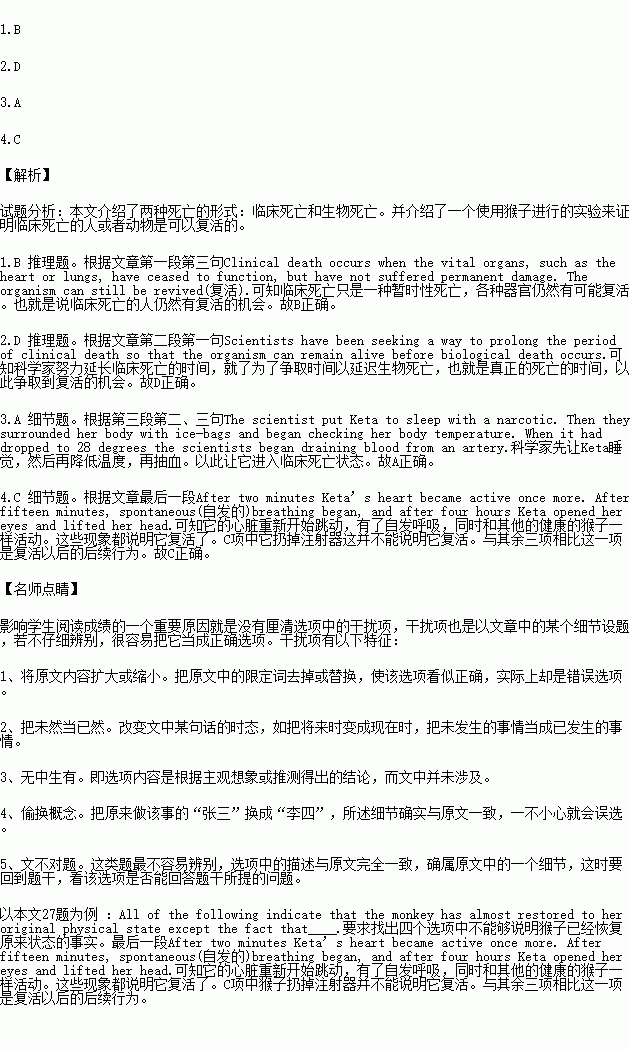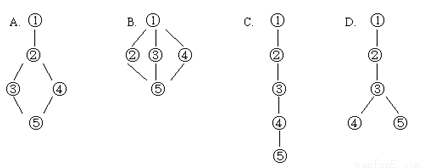题目内容
Death is natural, but do you have any idea of the process of dying? Modern scientists divide the process of dying into two phases --- clinical or temporary death and biological death. Clinical death occurs when the vital organs, such as the heart or lungs, have ceased to function, but have not suffered permanent damage. The organism can still be revived(复活). Biological death occurs when changes in the organism lead to the “breaking up” of vital cells and tissues. Death is then unchangeable and final.
Scientists have been seeking a way to prolong the period of clinical death so that the organism can remain alive before biological death occurs. The best method developed so far involves cooling of the organism, combined with narcotic sleep. By slowing down the body’s metabolism(新陈代谢), cooling delays the processes leading to biological death.
To illustrate how this works, scientists performed an experiment on a six-year-old female monkey called Keta. The scientist put Keta to sleep with a narcotic. Then they surrounded her body with ice-bags and began checking her body temperature. When it had dropped to 28 degrees the scientists began draining blood from an artery. The monkey’s blood pressure decreased and an hour later both the heart and breathing stopped: clinical death set in. For twenty minutes Keta remained in this state. Her temperature dropped to 22 degrees. At this point the scientists pumped blood into an artery in the direction of the heart and started artificial breathing. After two minutes Keta’s heart became active once more. After fifteen minutes, spontaneous(自发的)breathing began, and after four hours Keta opened her eyes and lifted her head. After six hours, when the scientists tried to give her a penicillin injection, Keta seized the syringe and ran with it around the room. Her behavior differed little from that of a healthy animal.
1.For a person who suffers from the clinical death, _________.
A. his most important organs are damaged.
B. he still has the possibility of getting back to life.
C. he can not avoid final death.
D. he is still very much alive
2.Scientists try to make the time of clinical death longer in order to __________.
A. slow down the body’s metabolism.
B. bring vital cells and tissues back to active life.
C. cool the organism.
D. delay the coming of biological death.
3.How did the scientists put Keta into clinical death?
A. By putting her to sleep, lowering her temperature and draining her blood.
B. By surrounding her body with ice-bags and draining her blood.
C. By lowing her blood pressure and stopping her heart from beating.
D. By draining her blood, lowering her blood pressure and stopping her breathing.
4. All of the following indicate that the monkey has almost restored to her original physical state except the fact that__________.
A. her heart beat again.
B. she regained her normal breath.
C. she rejected a penicillin injection.
D. she acted as lively as a healthy monkey.


